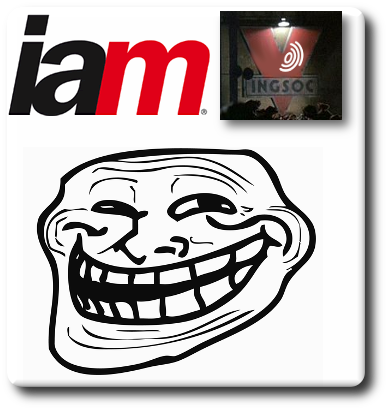

EARLIER this year we wrote a bunch of posts about the VENUE Act [1, 2]. The EFF had done a lot of work in the area, but after it made some headlines we haven't been hearing much about it. At its core, the VENUE Act suggests moving patent trolls away from Texas (where they enjoy plaintiff-friendly courts).
"At its core, the VENUE Act suggests moving patent trolls away from Texas (where they enjoy plaintiff-friendly courts)."Professor Crouch's site mentioned this strategy again a few days ago, noting: "A group of 45 professors sent the following letter to Congress arguing for statutory reforms to limit venue in patent infringement cases. One focus of this move is to direct intention toward a focused and limited action rather than another round of comprehensive patent reforms. This type of limited reform could come as part of a late-session omnibus package."
This was later mentioned again in part 2 that said: "While law professors call for venue patent reform, the TC Heartland venue and personal jurisdiction challenge appears to still have legs. In April 2016, the Federal Circuit rejected the mandamus action, but the Supreme Court recently granted TC Heartland’s delay petition – allowing its petition for writ of certiorari to be filed by September 12, 2016. In the case, TC Heartland argues that the statute itself (28 U.S.C. €§ 1400(b)) limits where patent claims can be brought and that the Federal Circuit has unduly broadened venue in ways that harm the system."
"So basically, IAM and its chums want to protect trolls and also go further by protecting software patents and other forms of nuisance."Academics understandably wish to discourage patent trolls. Some made a career (or many high-profile papers) out of it, e.g. Professor James Bessen. Don't expect patent lawyers-funded publications to join these professors. IAM (funded by the likes of MOSAID, a patent troll now known as Conservant) wrote a sort of rebuttal rather than coverage: "In a statement to this blog the advocacy group underlined its position: ‘21C does not favor a venue-only bill as it does not address the other abuses in the system, in particular with IPR/PGR. A policy fix is especially needed given the Supreme Court’s ruling that the PTO was legally entitled to adopt BRI.” That ruling from the Court came in Cuozzo v Lee which left the IPR regime intact."
Cuozzo was good news [1, 2, 3, 4], but not for patent lawyers. IPR/PTAB is also a good thing, but not for patent lawyers. So basically, IAM and its chums want to protect trolls and also go further by protecting software patents and other forms of nuisance.
"The situation in the United States is flaky when it comes to software patents right now."To quote the concluding words: "The professors’ letter may well place venue reform even further in the spotlight but without 21C on board it’s still hard to see how standalone legislation makes it to the President’s desk."
"21C" is the Coalition for 21st Century Patent Reform, which is more like a think tank, supported by large corporations such as AstraZeneca, BP, Eli Lilly, patent lawyers (American Intellectual Property Law Association), Ericsson (with patent trolls), and Siemens (software patents proponent).
Speaking of software patents, they seem to be going away or fading away. More of those dead software patents, having just died from Alice (as per the Supreme Court's decision), are reported on or mentioned at the court which is the originator of software patents. To quote a patent attorney: "Shortridge v. Foundation Construction--CAFC Held Claims Invalid under 101/Alice: http://www.cafc.uscourts.gov/sites/default/files/opinions-orders/15-1898.Opinion.7-11-2016.1.PDF …"
Also from this court (CAFC) we have the following news: "The Federal Circuit sitting en banc ruled in its The Medicines Company v Hospira opinion that MedCo’s purchase of manufacturer Ben Venue’s services to produce its anticoagulant drug Angiomax, which contains blood thinner bivalirudin, did not trigger the on-sale bar, as Hospira claimed."
The situation in the United States is flaky when it comes to software patents right now. They're dropping like flies, which is good for quality at the USPTO but not so good for patent lawyers and attorneys who are accustomed to making business out of software patenting (at the expense of software developers). ⬆